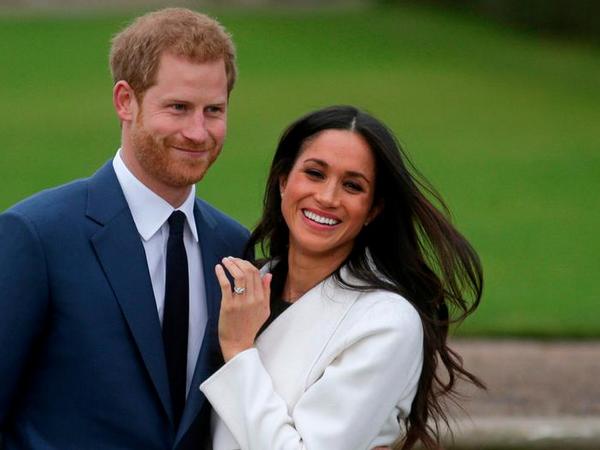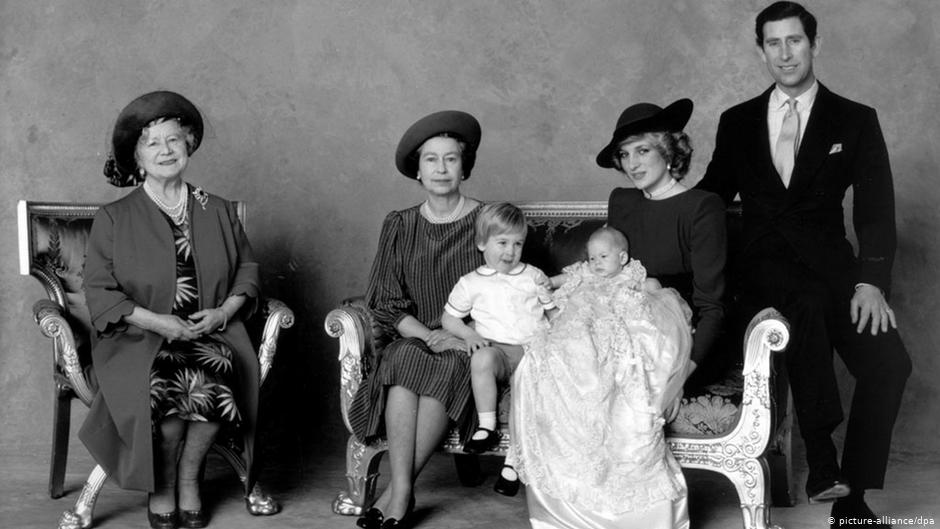Just In
- 1 hr ago

- 4 hrs ago

- 6 hrs ago

- 8 hrs ago

Don't Miss
- Movies
 Manoj Bajpayee’s Silence 2 Leaked Online In HD For Free Download After Its OTT Release
Manoj Bajpayee’s Silence 2 Leaked Online In HD For Free Download After Its OTT Release - Automobiles
 Google Maps To Ease EV Charger Finding With Latest Updates
Google Maps To Ease EV Charger Finding With Latest Updates - Finance
 Elon Musk Seeks Approval For Lucrative Pay Package Amid Legal Scrutiny
Elon Musk Seeks Approval For Lucrative Pay Package Amid Legal Scrutiny - News
 Rahul Gandhi Lacks The Bravery To Run In Amethi Polls, Claims Rajnath Singh
Rahul Gandhi Lacks The Bravery To Run In Amethi Polls, Claims Rajnath Singh - Technology
 OnePlus 11R 5G Solar Red Edition Now Available With New Storage Configuration; Get It for Rs 34,999
OnePlus 11R 5G Solar Red Edition Now Available With New Storage Configuration; Get It for Rs 34,999 - Education
 IIT Madras Introduces International master's course on Water Security and Global Change
IIT Madras Introduces International master's course on Water Security and Global Change - Sports
 Why is Dhanashree Verma not attending IPL 2024 matches of husband Yuzvendra Chahal?
Why is Dhanashree Verma not attending IPL 2024 matches of husband Yuzvendra Chahal? - Travel
 From Coconut Breaking on Head to Men Dressing as Women: 12 Unique Indian Rituals Explored
From Coconut Breaking on Head to Men Dressing as Women: 12 Unique Indian Rituals Explored
Lilibet Diana: Story Behind Prince Harry And Meghan Markle's Baby Daughter's Name

A new chapter is being written in the story involving Prince Harry, Meghan Markle and the British royal family. The couple, who infamously resigned from their royal duties and moved to the US, announced on Sunday through the website of their Archewell Foundation the birth of their daughter Lilibet Diana Mountbatten-Windsor, who was born on June 4 in Santa Barbara, California. Mother and child are well and back at home, they said.
"Lili," as the child will be called, is the second child of Harry and Meghan after son Archie Harrison.
Following the announcement of Lilibet Diana's birth, the British royal family said through a spokesperson that it was delighted about the birth of the baby girl. Harry's brother, Prince William, and his wife Kate equally expressed their pleasure.
British Prime Minister Boris Johnson likewise offered his congratulations. But the celebratory news also caused a stir on social networks. It comes after an explosive interview in early March with Oprah Winfrey, in which the couple accused parts of the British royal family of racism, among other things. The interview sent shockwaves around the world.
Debate Surrounding Her Name
Barely three days old, Lili — or more precisely, her name itself — is already becoming a political issue. "Lili was named after her great-grandmother, Her Majesty the Queen, whose pet name in the family is Lilibet," states Harry and Meghan's press release.
As fans of the British royal family certainly know, the nickname originated during the childhood of the future Queen Elizabeth II because she could not pronounce her own name as a toddler. Not only her grandfather, King George V, is said to have affectionately called the queen "Lilibet," it was also the way she was addressed by her husband, Prince Philip, who died just recently on April 9, 2021.
Meanwhile, Lili's middle name, Diana, is a tribute to Harry's late mother, Lady Di (Princess Diana).

For some British tabloids and various social media commentators — some of which are ardent supporters of the royals and thus categorically hostile towards Meghan Markle and her accusations of racism toward the royal family — the new baby's first name poses an affront. Resenting Harry and Meghan's resignation from their royal duties as well as their public accusations, the critics say the name they chose to give their daughter insults the widowed queen.
Others, however, interpret the naming not as an insult, but as an offer of reconciliation from the "renegade" couple to the royal family.
The Metro tabloid labeled the couple's tribute to the queen a "Gran Gesture," while the Daily Mail pondered whether the two had asked the reigning monarch for permission before the name was announced: "Lilibet: New Sussex baby given Queen's family nickname (but did they even ask her?)"
Special System Of Symbols Among The Royals
Regardless of the specific interpretation, what is striking is that the name of the daughter is not just a mere name. Naming her Lilibet Diana is being understood as a political act — as a sign to the royal family, but also to the legions of the population that support it, something that should be interpreted and decoded.
Where does this reasoning come from?
For one, there is the succession in monarchies. Lilibet Diana takes the eighth place in line and could potentially sit on the throne herself one day. However, like her brother Archie, she will at first not have a royal title.

Only once Queen Elizabeth II dies and her son Prince Charles becomes king would Lili officially become a princess as the king's granddaughter.
Much more important than the succession to the throne, however, is the other sort of system into which Lili is born. Depending on their position at court, royal family members must follow a strict etiquette of behaviour and are constantly being assessed and observed by millions of royals fans as well as journalists from tabloids around the world. Every detail is interpreted as having meaning: Outfits, family photos and public appearances are all charged with significance, feeding into the royal family myth.

Who May Represent The Royal Family?
Especially in monarchies, this myth is crucial for rule. The insignia of power and the display of rule have been important since at least the Middle Ages in order to stage the natural, mortal person of the king as a supratemporal figure of authority whose powers were instituted by God.
The king thus had, as described by historian Ernst Kantorowicz, two bodies: a natural one and a political one.

Viewing British tabloids, one thing becomes clear: This notion of royal bodies and gestures is still present today — even though the British royal family no longer exercises any relevant political power.
The idea of the public-political body, on the other hand, has persisted, as the dispute over the Lili's naming shows: By being given the nickname of the ruling queen — albeit in a modified form when shortened, the daughter of the "renegade" royals, of all people, receives, in the eyes of hardcore royalists, a position at the heart of the family to which she is not entitled.
The external controversy over the name is therefore related to a question of power: Who is allowed to present themselves as part of the royal family (and thus in positions of political power), and who is not?
It is against this background that Meghan and Harry's accusations of racism become relevant again, in which the question of political representation was precisely at issue: Parts of the royal family, as Meghan reported in an interview, apparently had concerns about the birth of their son. Or more precisely: about how dark his skin would be.
This article was translated from German.
Source: DW
-
 fashion trendsKate Middleton Wears A Blue Dress For Her 10th Wedding Anniversary; Plus Learn More About Her Engagement Ring
fashion trendsKate Middleton Wears A Blue Dress For Her 10th Wedding Anniversary; Plus Learn More About Her Engagement Ring -
 fashion trendsAs Princess Diana’s Wedding Gown Will Be Exhibited, Here Are Some Interesting Facts About Her Gown
fashion trendsAs Princess Diana’s Wedding Gown Will Be Exhibited, Here Are Some Interesting Facts About Her Gown -
 fashion trendsMeghan Markle And Prince Harry Make A Stylish And Stunning Appearance At An Event
fashion trendsMeghan Markle And Prince Harry Make A Stylish And Stunning Appearance At An Event -
 bollywood wardrobeHappy Birthday Priyanka Chopra Jonas: Her Major Fashion Moments And Why They Were So Discussed
bollywood wardrobeHappy Birthday Priyanka Chopra Jonas: Her Major Fashion Moments And Why They Were So Discussed -
 fashion trendsMeghan Markle Steps Down As A Senior Royal Member But Sometimes Her Fashion Reflected Departure Too
fashion trendsMeghan Markle Steps Down As A Senior Royal Member But Sometimes Her Fashion Reflected Departure Too -
 fashion trendsMeghan Markle's Royal Fashion May Not Always Be So Royal But Definitely Real
fashion trendsMeghan Markle's Royal Fashion May Not Always Be So Royal But Definitely Real -
 fashion trendsMeghan Markle Wore A £69 Dress And She Also Repeats Her Dresses Like Kate Middleton
fashion trendsMeghan Markle Wore A £69 Dress And She Also Repeats Her Dresses Like Kate Middleton -
 fashion trendsMeghan Markle's Tuxedo Minidress Brings Alive The Hollywood Glamour To The Royal Dressing Game
fashion trendsMeghan Markle's Tuxedo Minidress Brings Alive The Hollywood Glamour To The Royal Dressing Game -
 bollywood wardrobeWow! You Must See How Divine Meghan Markle Looks In Her Wedding Gown
bollywood wardrobeWow! You Must See How Divine Meghan Markle Looks In Her Wedding Gown -
 fashion trendsWhich British Royal Will Inspire Meghan Markle's Wedding Gown?
fashion trendsWhich British Royal Will Inspire Meghan Markle's Wedding Gown? -
 insyncIs Prince Harry Falling For Charlize Theron?
insyncIs Prince Harry Falling For Charlize Theron? -
 insync1 Hour+Prince Harry = 400 Pound Of Booze
insync1 Hour+Prince Harry = 400 Pound Of Booze


 Click it and Unblock the Notifications
Click it and Unblock the Notifications



